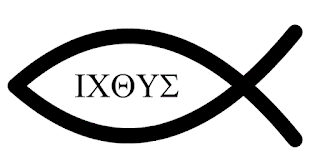The Precious in the Worthless
No one would hide something valuable and precious in a valuable container, but countless sums are commonly kept in a container worth only a cent. So it is with the soul. It is something precious, and it has come to be in a worthless body.
The Gospel of Thomas Saying [29]. Jesus says: "If the flesh was produced for the sake of the spirit, it is a miracle. But if the spirit <was produced> for the sake of the body, it is a miracle of a miracle. But as for me, I wonder at this, how this great wealth made its home in this poverty.
treasures in earthen vessels 2 cor 4:7
The Gospel of Thomas uses the word spirit the gospel of Philip uses the word soul sometimes there is a difference between the word soul and spirit but not here a Spirit or a Soul is a character, a personality. It is 'you'.
the large valuable object is hidden in a worthless container to disguise its value
Both the words soul and spirit refers to a person's mind or character compare the soul [the spirit, the character of a person, very large value].
The soul that is mind or character is a precious thing and it came to be in a contemptible body [human body with default sinful tendencies, very small value]
If you want to hide something valuable, to make it as inconspicuous as possible, you conceal it in the most valueless surroundings you can find. This is like your soul; your spirit is precious, but it is hidden in your body, which appears to have no true value. However, this too is an illusion, because the fact that it contains your spirit imparts inestimable value to your body, if it nurtures your spirit, rather than smothering it.
The point is that a body is a “factory” for transformation of energy. In it, the energy extracted from ordinary food, first of all, can become the energy of the consciousness, of the soul. It is thanks to this that the process of qualitative and quantitative growth of the consciousness can take place.
No one will hide a large valuable object in something large [a nation of people], but many a time one has tossed countless thousands [heavenly treasures of knowledge and wisdom] into a thing worth a penny [a simple man - to the “world”, the true “out-called ones” in Christ are considered worthless]. Compare the soul [the individual spirit consciousness in the body]. It is a precious thing and it came to be in a contemptible body [the “dust of the earth” which is food for the serpent (carnal and false reasoning born of intellect and free will having power over the spirit within most of the time] (Philip 16).








